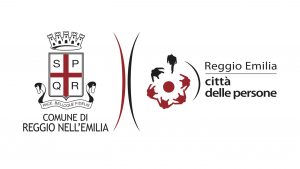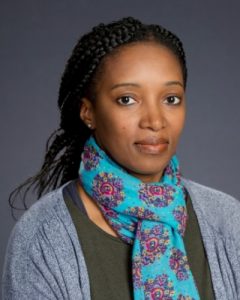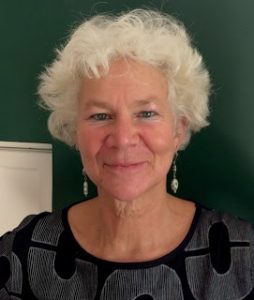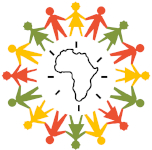SEMINAR
Friday 17 May 2019
Time: 2 – 4.30 pm
iThemba School Hall
91 Drury Road off Prince George’s Drive Capricorn, Muizenberg
The Friends of Thandolwethu Association NPO invite you to participate in a dialogue with the Reggio Emilia Inspired approach to early years learning as we all together think with this question:
What is a Reggio Emilia and Decolonizing Inspired Approach to Early Learning and how appropriate is it in the context of Cape Town?
Come and join parents, teachers, atelieristas, ECD staff, academics, volunteers, and students to discuss Reggio Emilia and decolonised education inspired approaches to early learning. The seminar will be run in the spirit of a situated dialogue with Reggio Emilia Inspired Practice that acknowledges community-based pedagogical inspirations and will include practical examples of Reggio Emilia Inspired early learning practices.
R250.00 per person, R200.00 per person if more than one person attends from each school/organisation. R50.00 for students.
Proceeds will go towards supporting the establishment of a Reggio Emilia inspired
ECD initiative of residents in Samora Machel, Philippi, Cape Town. Find out more on: www.friendsofthandolwethu.org
RSVP: catherinecollingwood@friendsofthandolwethu.org
City of Reggio Emilia patronage – Con il patrocinio del Comune di Reggio nell’Emilia

Speakers:
Dr Fikile Nxumalo, Ph.D, Assistant Professor of Early Childhood Education |
Dept. of Curriculum & Instruction Affiliated Faculty, African & African Diaspora Studies | Native American & Indigenous Studies, The University of Texas at Austin.
Born and raised in eSwatini, and now based in the US, Dr Nxumalo is a specialist in Reggio Emilia Inspired, decolonizing early learning practices and the professional development of teachers and curriculum.
Facilitator:
Joanne Peers (MA in Education, UCT), Early Years Educator and education consultant experienced in inclusive education, educator development and curriculum development. Co- researcher in the Project ‘Decolonising Childhood Discourses’.
Respondent:
Professor Karin Murris, Ph.D, Professor of Pedagogy and the Philosophy of Education, School of Education at the University of Cape Town. Principal Investigator of the Project ‘Decolonising Childhood Discourses’, Past President of the International Council of Philosophical Inquiry with Children (ICPC).
Participants:
Reggio inspired and interested educare and other pre-primary school based early years learning practitioners, and all those interested in decolonizing practices.
Programme:
14h00
Welcome to the venue
Introduction to Thandolwethu initiative
Speakers’ introduction
14h20
FikileNxumalo: Introduction to key elements and values of the Reggio Emilia Approach to deepen knowledge of this practice. Dr Nxumalo will share her experiences of learning in and with place/context; introduction to decolonial ECE perspectives, thinking with the Reggio Emilia approach.
14h50
BREAK (tea, coffee). Walkabout of the iThemba Capricorn early years classroom and classroom dedicated to art making.
15h20
Joanne Peers: reflection on the previous sessions, practical work with materials, Q&A. 16h00
Karin Murris: observations and open questions for the future. 16h20 – 16h30
Closing
(Participants are encouraged to bring documentation, without faces of children please)
Dr Fikile Nxumalo
 Dr. Fikile Nxumalo is an Assistant Professor of Early Childhood Education in the Department of Curriculum and Instruction in the College of Education at the University of Texas at Austin where she is also affiliated faculty in the Department of African and African Diaspora Studies and the Native American and Indigenous Studies Program. Her scholarship focuses on decolonial approaches to environmental education. Having worked extensively as a pedagogista in early learning settings, Dr. Nxumalo is passionate about inquiry-based curriculum in early childhood education.
Dr. Fikile Nxumalo is an Assistant Professor of Early Childhood Education in the Department of Curriculum and Instruction in the College of Education at the University of Texas at Austin where she is also affiliated faculty in the Department of African and African Diaspora Studies and the Native American and Indigenous Studies Program. Her scholarship focuses on decolonial approaches to environmental education. Having worked extensively as a pedagogista in early learning settings, Dr. Nxumalo is passionate about inquiry-based curriculum in early childhood education.
Drawing from her experience as a pedagogical facilitator (pedagogista) in early learning settings, Fikile is also interested in participatory and action-oriented research approaches with in-service early childhood educators. Fikile is passionate about inquiry-based curriculum in early childhood education, which is the focus of her co-authored book Journeys: Reconceptualizing early childhood practices through pedagogical narration (University of Toronto Press, 2014). Her book,
Decolonizing Place in Early Childhood Education (Routledge, 2019) examines the entanglements of place, environmental education, childhood, race, and settler colonialism in early learning contexts in British Columbia, Canada.
“In this groundbreaking work, Dr. Fikile Nxumalo invites critical thinkers, educators, and activists into a series of unsettling pedagogies of resistance and geographies of radical kinship. Dr. Nxumalo asks us to reimagine the practices of early childhood education, and environmental education in historically contextualized, politically demystified, and ethically-reflexive ways. Through interrogations of anthropogenic, anti-Black and settler colonial complicities in early childhood education, Dr. Nxumalo opens up new possibilities for ethical living and learning– a radically relational kinship with all of our relations. Situated in a compelling critical analysis of environmental degradation, precariousness, and exploitation, Dr. Nxumalo offers a timely intervention in the field of education. In contrast to preoccupation with psychocentric notions of complex trauma and damage-centered narratives of childhood, Dr. Nxumalo calls educators to take seriously the structural materiality of violence and alterities to it. To chart these unknown futures, Dr. Nxumalo brilliantly theorizes with Black, Indigenous, post-humanist, and feminist studies; and invites us to consider refiguring presence, witnessing, friction, and the super-complexity of ethical entanglements with one another and more-than-human life. This book is nothing short of strong medicine–to affirm Black and Indigenous life, futures and freedoms; and to call us to action towards different ways of being and doing with, and of land, water, and more than human life. This book should be required reading in studies in education, not only for its incredible theoretical contribution, but for the ways it will enliven radical imagination and movements of resistance.” – Jeffrey P. Ansloos (Fisher River Cree Nation) Assistant Professor of Indigenous Mental Health and Education, University of Toronto–Ontario Institute for Studies in Education.
She can be reached at fnxumalo@austin.utexas.edu
Karin Murris
 Karin Murris is professor at the School of Education, University of Cape Town (South Africa), where she convened the 16th ICPIC Conference in 2013. She holds a PhD in Philosophy with Children, having been trained in the US by the founder of P4C, the late Matthew Lipman. She is a past president of ICPIC, leads the Southern African P4C network and is the principal investigator of the Decolonising Early Childhood Discourses: Critical Posthumanism in Higher Education research project funded by the South African National Research Foundation (NRF) based at the University of Cape Town, South Africa. She is the author of Teaching Philosophy with Picture Books (1992), The Posthuman Child: Educational Transformation through Philosophy with Picturebooks (2016), and (with Joanna Haynes) Literacies, Literature and Learning: Reading Classroom Differently (2018), Storywise: Thinking through Stories (2002) and Picturebooks, Pedagogy and Philosophy (2012). She is co-editor of the Routledge International Handbook on Philosophy for Children (2017). To find out more about Karin, her articles can be downloaded from https://uct.academia.edu/KarinMurris.
Karin Murris is professor at the School of Education, University of Cape Town (South Africa), where she convened the 16th ICPIC Conference in 2013. She holds a PhD in Philosophy with Children, having been trained in the US by the founder of P4C, the late Matthew Lipman. She is a past president of ICPIC, leads the Southern African P4C network and is the principal investigator of the Decolonising Early Childhood Discourses: Critical Posthumanism in Higher Education research project funded by the South African National Research Foundation (NRF) based at the University of Cape Town, South Africa. She is the author of Teaching Philosophy with Picture Books (1992), The Posthuman Child: Educational Transformation through Philosophy with Picturebooks (2016), and (with Joanna Haynes) Literacies, Literature and Learning: Reading Classroom Differently (2018), Storywise: Thinking through Stories (2002) and Picturebooks, Pedagogy and Philosophy (2012). She is co-editor of the Routledge International Handbook on Philosophy for Children (2017). To find out more about Karin, her articles can be downloaded from https://uct.academia.edu/KarinMurris.
Joanne Peers
 Joanne Peers (MA in Education, University of Cape Town). Joanne is an Early Years education consultant experienced in inclusive education, educator development and curriculum development. She works as the National Curriculum Studies lecturer at The Centre for Creative Education with BEd Foundation Phase and Intermediate Phase student teachers. Additionally, she works at Pinelands North Primary school as Community Support Co-ordinator which continues to add practice based values to her work in education and research. Joanne is a co- researcher in the project ‘Decolonising Early Childhood Discourses’ and has presented at Cape Town conferences on inquiry based pedagogy. She has a special interest in conversations that disrupt habitual ways of thinking about child and childhood, including disrupting the definitive notion of quality education. Publications: Murris, K., Reynolds, R. & Peers, J. (2018) Reggio Emilia inspired philosophical teacher education in the Anthropocene: Posthuman child and the family (tree). In Journal of Childhood Studies: Interdisciplinary Dialogues in Early Childhood Environmental Education Special Issue, 43 (1): 15-29. Reynolds, R. with Peers, J. (2018) ‘Chairs and questions at work in literacies’. Joanne can be reached at joannepeers@gmail.com
Joanne Peers (MA in Education, University of Cape Town). Joanne is an Early Years education consultant experienced in inclusive education, educator development and curriculum development. She works as the National Curriculum Studies lecturer at The Centre for Creative Education with BEd Foundation Phase and Intermediate Phase student teachers. Additionally, she works at Pinelands North Primary school as Community Support Co-ordinator which continues to add practice based values to her work in education and research. Joanne is a co- researcher in the project ‘Decolonising Early Childhood Discourses’ and has presented at Cape Town conferences on inquiry based pedagogy. She has a special interest in conversations that disrupt habitual ways of thinking about child and childhood, including disrupting the definitive notion of quality education. Publications: Murris, K., Reynolds, R. & Peers, J. (2018) Reggio Emilia inspired philosophical teacher education in the Anthropocene: Posthuman child and the family (tree). In Journal of Childhood Studies: Interdisciplinary Dialogues in Early Childhood Environmental Education Special Issue, 43 (1): 15-29. Reynolds, R. with Peers, J. (2018) ‘Chairs and questions at work in literacies’. Joanne can be reached at joannepeers@gmail.com
